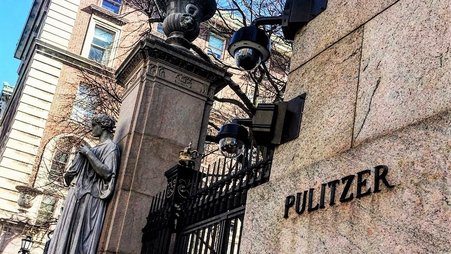Elon Musk — the world’s biggest free speech hypocrite — is at it again. This time, he isn’t just bringing a “thermonuclear” lawsuit against a media outlet that criticized social platform X. He’s going after all of its donors as well.
You may recall that last year, Musk’s X Corp. filed a “gloriously stupid” lawsuit against nonprofit journalism watchdog Media Matters for publishing a research report that found that advertisements for major brands appeared next to antisemitic and white nationalist posts on X.
Unfortunately, despite the suit’s stupidity, it’s been an effective SLAPP. In May, Media Matters announced that it was laying off some staff, with its president blaming “legal assault on multiple fronts” that followed, such as the lawsuit by X and other legal actions by Republican state attorneys general.
Now, X is trying to expand the SLAPP to target not just Media Matters but anyone who’s donated to the publication. As part of discovery in its lawsuit, X has sought virtually every record Media Matters has about its donors, which would include its donors’ identifying information.
Coupled with Musk’s past legal actions and retaliation against the very long list of people who’ve questioned, criticized, or displeased him, it’s hard to see this demand as anything more than an attempt to intimidate Media Matter’s donors. The Supreme Court has disapproved of such tactics before. In cases both old and new, it’s decided that the First Amendment protects against the compelled disclosure of nonprofits’ membership and donor lists.
Unfortunately, a lower court ordered Media Matters to turn over its donor information. The publication appealed, and this week Freedom of the Press Foundation (FPF), represented pro bono by attorneys from Selendy Gay, filed an amicus brief in support of Media Matters. It pointed out how the lower court’s order would create a troubling legal path for future deep-pocketed litigants to target their perceived ideological enemies in the press by going after their donors.
With the economic collapse of many legacy media companies, Americans increasingly rely on nonprofit news outlets and freelancers supported by donations. If donors have to worry about being identified and sued by billionaires or corporations, or even just being ridiculed or ostracized for their support of a controversial news outlet, they may stop supporting journalists’ work. That would be ruinous for the media ecosystem and for the American public that gets its information from nonprofit news outlets and independent journalists.
Today, the target is Media Matters and its donors. Tomorrow it could be other news outlets disfavored by powerful people on the left or the right. The First Amendment must protect people’s right to read — and fund — the news.
Read the amicus brief here or below.





